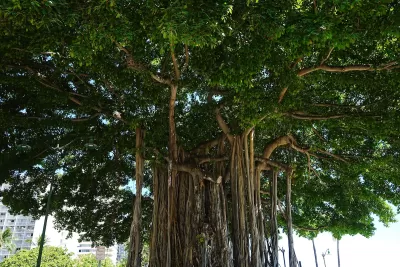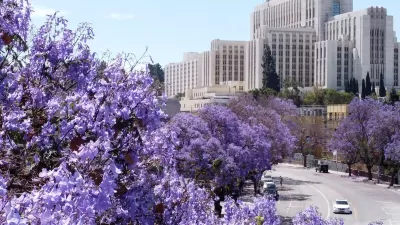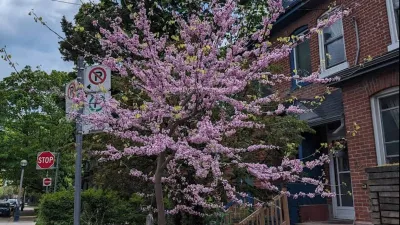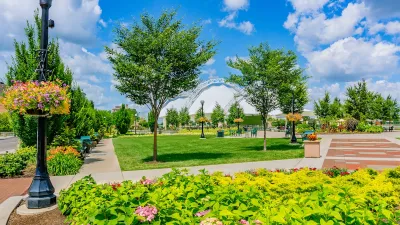Honolulu is expanding its urban tree canopy through community-driven park revitalization efforts, emphasizing the environmental, social, and cultural benefits of trees in creating a more resilient and equitable city.

Honolulu’s urban tree canopy plays a crucial role in community well-being, environmental resilience, and cultural connection, yet coverage remains uneven across the city. Measuring tree canopy helps identify gaps and prioritize areas for planting, particularly in underserved neighborhoods where extreme heat and limited access to green space are significant concerns. Urban trees provide essential benefits, such as cooling streets, filtering air, reducing stormwater runoff, and supporting local economies. Parks serve as critical spaces for expanding tree canopy and fostering social, economic, and environmental benefits, reinforcing their role in urban sustainability.
As Daniel Dinell and Lea Hong highlight in this article, two notable examples of community-driven greening efforts are ʻAʻala Park and Makalapa Neighborhood Park. ʻAʻala Park, historically a hub for political and cultural activities, faced social and environmental challenges but is now being revitalized through a collaborative process led by Trust for Public Land. Partnering with local stakeholders and the University of Hawaiʻi Community Design Center, the project envisions a park featuring native plantings, agroforestry, and a community garden. Similarly, at Makalapa Neighborhood Park, youth advocates successfully pushed for increased amenities and tree planting efforts, demonstrating the power of grassroots involvement in creating healthier urban spaces.
These efforts highlight a growing movement to restore and enhance Honolulu’s urban forests, emphasizing the importance of community participation in reclaiming and greening public spaces. The city’s Department of Parks and Recreation, alongside nonprofit groups and engaged residents, is making strides in accelerating tree planting and park improvements across Oʻahu. As Honolulu celebrates the Year of Our Community Forests, residents are encouraged to take part in tree-planting initiatives, volunteer programs, and advocacy efforts. By taking action — one tree, one park, one person at a time — Honolulu can reverse urban tree canopy loss and build a more resilient, greener future.
FULL STORY: Loving Trees, Loving Parks: An Rx For Our Urban Areas

Florida Considers Legalizing ADUs
Current state law allows — but doesn’t require — cities to permit accessory dwelling units in single-family residential neighborhoods.

Manufactured Crisis: Losing the Nation’s Largest Source of Unsubsidized Affordable Housing
Manufactured housing communities have long been an affordable housing option for millions of people living in the U.S., but that affordability is disappearing rapidly. How did we get here?

Americans May Be Stuck — But Why?
Americans are moving a lot less than they once did, and that is a problem. While Yoni Applebaum, in his highly-publicized article Stuck, gets the reasons badly wrong, it's still important to ask: why are we moving so much less than before?

EV Chargers Now Outnumber Gas Pumps by Nearly 50% in California
Fast chargers still lag behind amidst rapid growth.

Affordable Housing Renovations Halt Mid-Air Amidst DOGE Clawbacks
HUD may rescind over a billion dollars earmarked for green building upgrades.

Has Anyone at USDOT Read Donald Shoup?
USDOT employees, who are required to go back to the office, will receive free parking at the agency’s D.C. offices — flying in the face of a growing research body that calls for pricing parking at its real value.
Urban Design for Planners 1: Software Tools
This six-course series explores essential urban design concepts using open source software and equips planners with the tools they need to participate fully in the urban design process.
Planning for Universal Design
Learn the tools for implementing Universal Design in planning regulations.
City of Moreno Valley
Institute for Housing and Urban Development Studies (IHS)
City of Grandview
Harvard GSD Executive Education
NYU Wagner Graduate School of Public Service
City of Cambridge, Maryland
Newport County Development Council: Connect Greater Newport





























